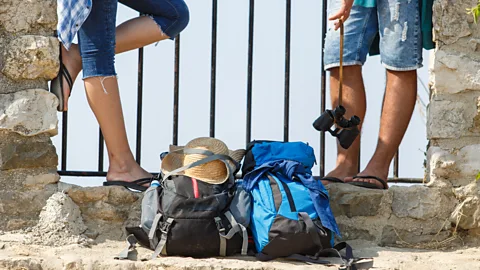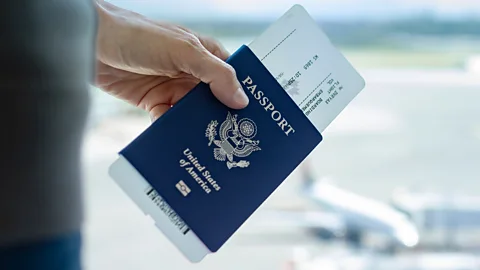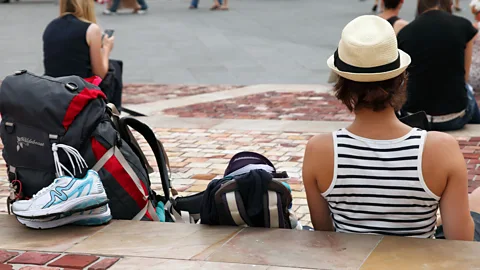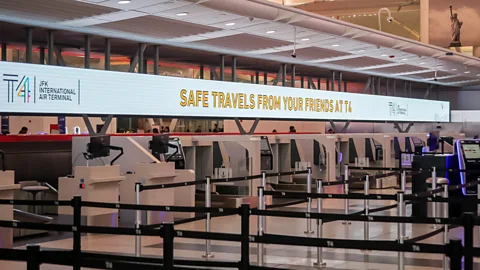Is It safe to travel? Americans react to the US 'worldwide caution' alert
 Getty Images
Getty ImagesThe US State Department has issued a rare global security warning ahead of summer. But travellers – and the destinations that rely on them – are largely undeterred.
Just in time for the peak summer travel season, last week the United States State Department issued a rare "worldwide caution" security alert. Triggered by the Israel-Iran conflict and rising global tensions, the warning urges US citizens to take extra caution wherever they are in the world, citing the risk of anti-American demonstrations and unexpected airspace closures, particularly in the Middle East.
The alert is layered on top of the State Department's typical travel advisories, which rank countries from Level 1 (exercise normal precaution) to Level 4 (do not travel). And with US travel already facing headwinds from airline near-misses and enhanced border security, the worldwide warning puts additional strain on what was already a shaping up to be a challenging summer.
Still, many Americans appear undeterred.
"I'm not changing my plans one bit," says American comedian Dan Nainan, who has upcoming trips to Italy, Singapore and the Galapagos. "I suppose I would reconsider if World War Three broke out – but short of that, I think it's important to not get caught up in too much fearmongering."
American traveller Hilary Reiter Azzaretti agrees. She recently returned from trips to Italy, Bosnia and Herzegovina and Croatia and says she felt welcome and safe everywhere. "The alerts won't deter my plans to travel, though I will probably avoid crowded, touristy attractions," she says. "I like taking advantage of travelling when fewer people are doing so and if feel I can do it as safely as possible."
 Getty Images
Getty ImagesOthers are taking a more cautious approach. Vanessa Gordon, publisher of East End Taste, planned to take her children to Europe this July but will now keep them in day camp on Long Island. "I will still travel overseas," she says. "[But] travelling with children, especially as a single/solo parent, comes with vulnerabilities and risks that may be unseen. I am not necessarily concerned for myself but more so prioritising the safety and security of my children."
While few Americans are outright cancelling their trips, many are rethinking where to go this summer. "A worldwide alert is quite rare for a country to issue, and so I am heeding the message," says Colleen Kelly, host of the TV series Family Travel with Colleen Kelly, noting she will avoid travelling abroad. "That does not mean I will not travel, however, but I have chosen to travel only domestically or to Canada."
Destinations respond: Reassurance and resilience
Canada in particular is eager to keep US tourists coming, especially after relations between the two countries turned icy in recent months – emphasising favourable exchange rates, cooler summer temperatures and ease of access with direct non-stop flights.
"Canada continues to be one of the safest countries in the world to visit," says Lynn Henderson who represents Edmonton, the capital of Alberta. "Canada's 'Festival City' has a plethora of events for Americans to enjoy all summer long, whether it's 146-year-old K-Days or North America's largest and oldest Fringe Theatre Festival."
 Getty Images
Getty ImagesSouth of the border, Mexico hopes to lure American tourists with promises of relaxation from the stress of the rest of the world. The Westin Resort and Spa Puerto Vallarta is offering a special "Calm They've Been Craving" package, offering American guests a chilled hibiscus or lavender infusion and a "15-Minute Reset" shiatsu massage on arrival.
Many destinations are adopting this calming pivot in light of recent events. "Tourism boards aren't backing away," says Leah Miller, marketing strategist at Versys Media. "Instead, we see a push toward education and reassurance."
She notes that several regions she's worked with are proactively reframing their messaging to maintain appeal without diminishing travellers' concerns. "One client pivoted their promotional content from bold adventure to serene, restorative scenes – highlighting wellness, nature immersion and smaller group experiences. This soft repositioning has proven impactful in keeping conversion rates strong."
New Zealand and Australia are both actively courting US tourists, touting their Level 1 advisory status and promoting themselves as safe long-haul options. Tasmania, the island state where Americans are the number one inbound travellers, continues its "Come Down For Air" campaign that encourages travellers to find their own space and calm. Meanwhile, train tour company Great Journeys New Zealand has increased marketing spend in the US, leaning into the strong US dollar vs the NZ dollar (at a five-year high) and the country's third-place ranking in the 2025 Global Peace Index.
 Getty Images
Getty ImagesAgencies advise caution, not cancellation
Travel advisors say they've seen very few outright cancellations, though they're fielding more questions, with some travellers swapping one destination for another. "Only two clients decided to cancel a European cruise," says Christina Nagy Ernst, president of VIP Alpine Tours. "Today, I've also received two calls for sign-ups on my December tours, which shows that business is still steady."
She recommends Americans register their trip with the US State Department's STEP program, which allows local embassies or consulates to contact travellers in the case of civil unrest, natural disaster or a family emergency.
In short, while the alert has created uncertainty, most travellers – and tourism boards – are staying the course. Miller says that clear and direct communication will be a priority this summer, noting that destinations are emphasising on-the-ground safety measures, real-time advisories and traveller support services. As Nagy Ernst put it, "Education is key."
--
If you liked this story, sign up for The Essential List newsletter – a handpicked selection of features, videos and can't-miss news, delivered to your inbox twice a week.
